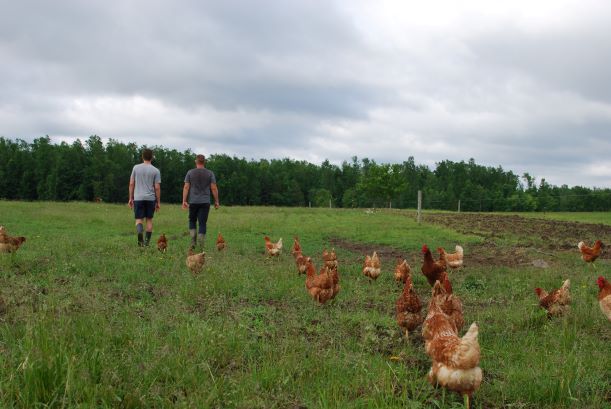Get $60 OFF throughout your first 2 boxes with code HOLIDAY60.
Offer ends in ::
Set your location to shop products local to you.
NIKU Farms
Thank you for your feedback!
If you requested further assistance, you’ll receive an email confirmation and we’ll follow up within 24 hours.
Got more questions? Start a new chat.
End chat
Are you sure you want to end the chat?
Cancel
Are you sure?
Your response has not been submitted. To process your request for further assistance, please hit the 'Back' button below, complete the form and submit your request.
Close Chat
Being a conscious consumer isn’t easy, especially when the meat industry is saturated with terms and labels that sound pretty similar. People have different standards when it comes to their meat, such as where the animal was raised or what they were eating.

Some terms are regulated by governmental organizations, while others can be interpreted and used quite freely. Regardless, these labels give consumers a general idea of the farming practices used to produce their meat. If you ever have any questions on the specific practices of the farm you’re buying from, it’s always a good idea to ask them directly.
There’s a lot of considerations to take into account when purchasing your meat and the multitude of labels and categorizations is a lot to comprehend. That’s why we’ve compiled and defined some common farming labels in this blog post to make it a bit easier to understand it all.
Organic – One of the most common terms, organic simply means there were no synthetic pesticides, synthetic fertilizers, sewage sludge, genetically modified organisms or ionizing radiation used in the farming process.
The Organic label in Canada is federally regulated. Check out the Organic Products Regulations 2009 (SOR/2009-176) if you want to learn more.
Grass-fed – Grass-fed meat means that the animals were raised on pasture and not fed via artificial feedlot or grain-fed system. This type of farming allows the animals to forage and graze for their own and provides the most natural diet possible. If you do see a grass-fed label, it’s always best to ask whether the animals has been finished on grass as well.
The term grass-fed can be a bit ambiguous as farms who only feed their cows grass for the first few months (and then grain finish) can still often use this label.
Grass-finished – similar but not identical to grass-fed, grass-finished label means that animals consumed grass through the end of their lives.
No added hormones – This label denotes meat products with no hormone additives. Hormones are typically added when farmers implant a pellet in a cow’s ear at an early age which releases hormones throughout the animal’s life. These hormones promote weight gain in animals but have raised a few health concerns about higher levels of estrogens.
In Canada, hormone additives are banned in poultry and pork products but are still allowed in beef.
Non-GMO – Non-GMO stands for non-genetically modified organisms. GMO’s are defined by the World Health Organization as “organisms in which the genetic material (DNA) has been altered in a way that does not occur naturally.”
Farms who use the non-GMO label raise their livestock with feed, whether that be grass or grain, that is free of GMO’s.
Pasture-raised – pasture-raised means that the animals were raised on a pasture where they were able to roam, graze and live in a natural environment. This contrasts with caged farms where the animals are kept in confinement indoors for most of their lives.
None of our farms have the organic certification. The reality for many small farms is that this certification is very expensive to attain. However, all of our farms raise their animals on pasture and they believe that this process is beyond organic because they are raising their animals in the most natural way possible. Organic certifications on the other hand, may be given to farms that feed their animals organic feed but raise them in barns and/or cages. If you were to ask one of our farmers what they think of how they raise their animals, they would tell you it’s “beyond organic”
There are a lot of considerations to keep in mind when determining where you want to source your meat. We hope this post helps you, in some way, with your meat buying process. Check out some of our meat products at NIKU Farms, and read about all of our local Ontario farms that we are partnered with. If you have any questions, we’re an open book! Give us a call at 1-888-789-3213 or send us an email at info@nikufarms.com

when you subscribe to our mailing list.